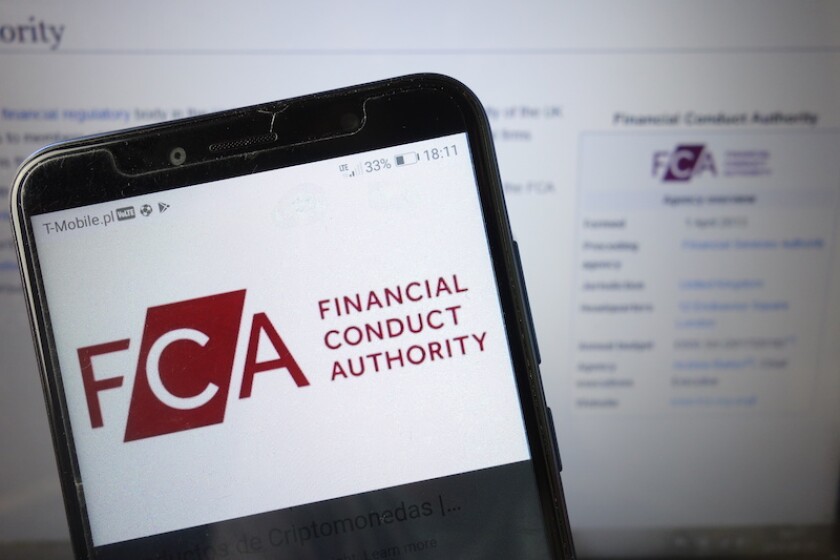Tackling money laundering is a new area of focus for the UK financial regulator. New enforcement tools could help it in that mission
Recent on-screen dramas – including Ozark, Breaking Bad and the BBC's McMafia – have pushed money laundering into the spotlight, leading to new levels of public interest around the concept. This runs parallel to an increased government focus on the matter, with regulators and law enforcement agencies engaged in a crackdown, official communications teams tasked with an awareness drive and legislators pushing through reforms to tighten controls and strengthen supervisory measures.
With all of this in mind, it is worth thinking about how the key financial regulator – the Financial Conduct Authority (FCA) – is currently approaching the issue and how it is expected to do so going forward. What is the FCA's role specifically within the government's anti-money laundering (AML) clampdown? How will the body ensure reforms are taken seriously, and enforcement is rigorous? What further changes can be expected?
AML reform – strengthened powers for regulators
It is worth firstly considering the context within which the FCA is now operating in a little more detail. The UK government has introduced a raft of measures over recent years in an attempt to stamp out money laundering, and reduce risks to individuals and organisations. Substantial legislative reform came with the implementation of the new Criminal Finances Act and updates to AML regulation in 2017, bringing what is probably the biggest reform of supervision and enforcement in a decade. Companies' risk management and reporting requirements have increased substantially, and so have regulatory bodies' powers to monitor activity and enforce adherence to rules. Penalties for money laundering are also now more severe than ever, sending a clear zero tolerance message.
At the beginning of this year, the government established a new body focused exclusively on tackling money laundering – the Office for Professional Body Anti-Money Laundering Supervision (OPBAS) – which sits within the FCA. The organisation is focused on facilitating collaboration between professional body anti-money laundering supervisors – such as the Solicitors Regulation Authority, the Insolvency Practitioners Association and the Institute of Chartered Accountants – statutory supervisors and law enforcement agencies. OPBAS aims to improve the consistency and quality of AML supervision across the accountancy and legal sectors, both of which are key risk areas.
Alongside statutory reform, new legislation and the creation of OPBAS, the government has run several campaigns focused on raising awareness around money laundering and fraud more generally, encouraging employees, employers and consumers to speak up where they see suspicious activity. The Flag It Up initiative, for instance, run by the National Crime Agency and Home Office in collaboration, involved the authorities working with the accountancy and legal professional bodies to establish the key warning signs and red flags for money laundering, to help professionals protect themselves and their firms. Similarly, the government- backed Take Five campaign, run by Financial Fraud Action UK, encourages all to stop, think and take time to consider whether a situation is genuine, or could involve foul-play.
The increased focus on money laundering is now therefore clear. This is the backdrop against which the FCA is now operating, working with firms and focusing its activity.
Criminal enforcement
There is a new and heightened risk of criminal enforcement when it comes to violation of AML procedures and controls. The FCA has stressed that in addition to exercising its supervisory and civil enforcement powers in relation to those it regulates, it may also use its criminal powers to prosecute. Where failings are particularly serious or repeated without correction, it is likely to increasingly consider this a proportionate response.
There is a wide-ranging criminal offence under the new money laundering regulations. The regulations set out the requirements that those in the regulated sector – gatekeepers to the financial system including banks and auditors – need to meet in relation to controls intended to prevent their business from being used for money laundering purposes. These include provisions regarding customer due diligence and policies, and other controls and procedures around AML or terrorist financing. Certain firms also have additional regulatory obligations, dependant on the sector. The regulations contain a criminal offence in relation to the breach of these requirements (the requirements offence). The maximum sentence listed under the regulations is two years and/or an unlimited fine. To date, the requirements offence under the previous regulations has rarely been pursued, but it is very possible that in the current climate, this could change.
The FCA is a designated prosecutor in relation to regulations surrounding money laundering, along with certain other offences, and is also able to prosecute substantive money laundering offences as a private prosecutor. The body may also refer cases of suspected money laundering to other law enforcement agencies for prosecution.
Individuals and firms need to be live to the growing risk of criminal proceedings and the severity of the penalties they could face for failing to put in place adequate AML protections. Communicating the risk of full criminal prosecution – which of course can carry grave consequences for the future of a company – to employees is now crucial, so that all understand it is vital to adhere to rules.
DPAs: are US-style pleas coming to the FCA?
Deferred prosecution agreements (DPAs) are also worth some consideration in the context of money laundering. DPAs are agreements between a prosecutor and an organisation under investigation for serious wrong-doing, under the supervision of a judge. They allow a full prosecution to be suspended provided the organisation meets certain specified conditions, allowing the collateral damage from a full criminal conviction to be avoided. They remove the need for a lengthy, costly trial and allow companies the opportunity to recover from a serious breach of regulation or policy failing.
Currently, unlike the Crown Prosecution Service and Serious Fraud Office, the FCA does not have the power to enter into a DPA with a company. However, there are indications that the privilege may soon be heading the regulator's way. The inclusion of various offences under the Financial Services and Markets Act 2000 within the list of specified breaches for which a DPA can be offered can be taken as a signal that the FCA may one day gain the ability to enter into DPAs.
The list of specified offences for which a DPA is available includes several money laundering breaches. If the FCA was to become a designated prosecutor for the purposes of the DPA regime, the agreements could be a useful tool for the FCA in relation to sufficiently serious failures in AML controls. They would also serve as a clear message to the market that serious failings in the AML sphere can attract serious consequences.
Final thoughts
Money laundering, as well as the steps that individuals and businesses are taking to protect against it, is being taken more seriously than ever. Companies, particularly those in the regulated sector, need to be rigorous when it comes to risk management, controls and processes. Taking the time to step back and review systems is crucial. Organisation-wide education and training is also key; management need to ensure that employees at every level of an organisation understand the risks and the role that they as individuals play in protecting their company.
Regulated firms would also do well to watch the FCA closely over coming months, listen to its advice and pay attention to the gaps in compliance that it is focused on closing. That way, any flaws in compliance strategy can be addressed quickly and a lengthy investigation by the regulator avoided. The use of available criminal prosecution powers could be the next trend in AML enforcement. Investing time and resources proportionately can help firms, and indeed individuals, protect themselves from this worst case scenario.

|
Jonathan Pickworth Partner White & Case (London) |
|

|
Jonah Anderson Senior associate White & Case (London) |

